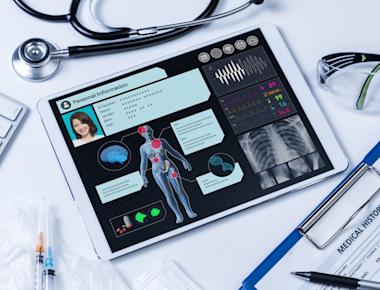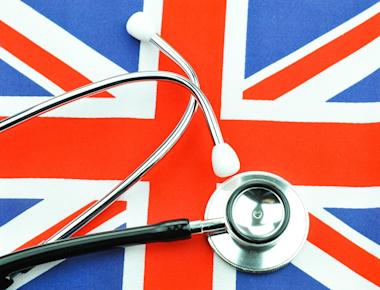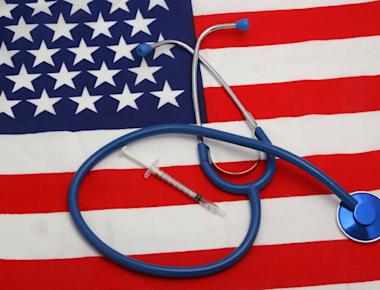

Whenever we go to a hospital or to a doctor, we can always expect to receive some forms to fill out. Those forms generally gather information about us, from our birth date to insurance information. However, despite the preliminary insignificance and annoyance of the countless forms, they are imperative for the well-being of patients. Health records are what healthcare providers utilize to gather information about you which ultimately influences clinical decisions by the provider. Thus, it is extremely important to make sure that health records reflect us as individuals to improve clinical decision-making. Now, this is where electronic health records come into play.
Electronic health records (EHRs) are simply digital versions of the paper health records that we are used to filling out. Health records play such a tremendously vital role in the USA’s health care system that they subsequently hold the key to cutting down social determinants of health. Social determinants of health are “conditions in the places where people live, learn, work, and play that affect a wide range of health and quality-of life-risks and outcomes” as defined by the CDC. These conditions of our lives are often not brought to the attention of healthcare providers, which can negatively impact the well-being of the patient. EHRs offer the solution to this problem as they allow people to take better control of their health. EHRs facilitate communication between multiple providers and the patient, which allows for a better network between patients and healthcare providers, which hastens the often arduous process of gaining healthcare. For example, if a patient has just received an ACL repair, they will need a physical therapist afterward to help with recovery. Furthermore, their insurance provider will need to pay for the costs they are responsible for. Using EHRs, this information is able to be communicated to all stakeholders more effectively and efficiently, which reduces the burden on the patient.
If patients are able to control their health records and the information provided in them, then they are better able to illustrate a broader understanding of their risk factors. For example, if someone has been working in a work environment that can leave them exposed to harmful fumes, then by putting that in their health records, the healthcare provider can have a better opportunity to catch possible diseases before they occur. EHRs can provide better preventive care for patients as healthcare providers can catch and screen for diseases patients may be prone to. Furthermore, EHRs can help healthcare providers examine trends and commonalities between specific groups, which can further benefit preventive care.
However, EHRs, like many things in the tech world, can be at risk of being hacked. EHRs can be prone to ransomware which holds a patient’s data hostage until a certain amount of money is paid for. For many, this is what makes EHRs a concern to use. If the data can be stolen and vulnerable to hacks, then this could lead to issues with patient data safety. So how does one secure patient data? Well, there are many ways the healthcare industry seeks to fix this, from multi-factor authentication to rules that keep healthcare providers from leaving the information at risk of being misused. However, in my opinion, I think the best way to secure patient data is by utilizing blockchain technology. The security provided by blockchain is unparalleled and allows only those with a certain key to decrypt the data they are trying to access. Blockchain offers a path towards having easily accessible electronic health records while ensuring patient data security.
Overall, electronic health records hold a better future for the healthcare industry, one with better preventive care and one where patients are able to take control of their data, their health, and their lives.
Global Health Professional
Expertise
Social Media
Subscribe to our newsletter!
Quick Links
Legal Stuff







